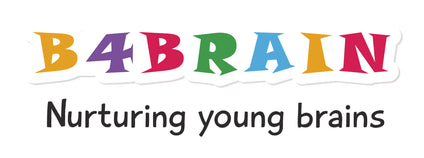Parenting Support

Why early sensory stimulation is crucial in the first 3 years?
Early stimulation programme aims at the stimulation of all the five senses of the body and is very important for the intellectual development of a baby. Research has shown that a newborn’s brain develops 2-3 million synapses each second. These synapses forge the route for sensory messages to reach the brain. The more synapses that are used, the more quickly these become permanent. If not used, the synapses may die out and lead to a phenomenon known as pruning. Pruning ultimately prevents ‘information overload’ by cutting out non-functional pathways.
Early Stimulation is the key
In fact, it is difficult to reverse the negative effects in an individual who was deprived of such sensory stimulation in early life. Taken together, sensory stimulation is vital to develop sensory pathways in the brain and thus promote normal development. This stimulation also helps the child learn about the world, as well as communicate and form attachments with other people.
B4Brain at your rescue
B4brain, on realizing the relevance of early stimulation of a baby’s brain brings to you a wholesome package aesthetically and scientifically designed for early childhood, so that a strong intellectual base is built on which you can build further upon, stage after stage. Developed by Pediatricians, Child Psychologists, Child Development Experts, Scientists, Engineers and Teachers B4Brain presents subscription boxes provided with age-appropriate toys, books and activities for children from birth to 3 yrs
B4Brain Developmental Toys
Your B4Brain toys are baby-friendly, and eco-friendly to ensure perfect safety for your newborn wonders The toy design is ergonomically and aesthetically perfected for the baby’s little eyes, ears and skin Scientific and research based, they cater to the baby’s stage-by-stage cognitive developmental needs The wooden toys are eco-friendly and are either made of high quality Ivory Wood or Beech Wood or Teak wood carefully chosen for baby’s utmost safety The fabrics used are of good quality and are washable The fabrics may be high quality felt, cotton, jute, jean, velvet and/ or silk The painted toys are extremely safe, paints used are non-toxic and edible too

Newborn Care
1.Breast feeding

- Breast feed immediately after birth.
- New-born needs to be fed 2 to 3 hourly in the first 2 days, and later be fed on demand.
- Exclusive breast feeding till 6 months and continue till 2 years.
- Don’t give water till 6 months unless medically indicated.
- Adequate feed determined by passage of urine 6 to 8 times 24 hourly and sleep-cycles of 2 to 3 hours after each feed.
Burp properly after breast feed till gas is released or till 20 minutes.
2.Baby dress

Cover baby properly with cloths including head cap, mittens in hand and socks in leg which prevent temperature loss. In winter additional two-layer woollen clothes may be needed.
3.Baby room
Rooming in-Newborn should not be separated from mother. Co-bedding with mother facilitates early breastfeeding and bonding. Keep baby in well-ventilated rooms.
4.Baby body care and well-being
Umbilical cord care - umbilical stump should be kept dry and devoid of any applications. Watch for pus or redness around umbilicus, if present consult a Paediatrician. All babies should be supplemented with Vitamin D from birth till 1 year. Start tummy time immediately after cord fall in a flat surface. Gently massage baby by applying coconut oil in the body. Limit visitors to prevent infection
Common queries in Babycare
1.Weight loss
In the first 7 days upto 10% weight loss is expected, by 7 to 10 days baby regains weight, and subsequently gains weight by 20 to 40g per day.
2.Hiccups and sneezing
Hiccups and sneezing are normal in a newborn. During hiccups, burping and feeding help reduce it.
3.Tear duct block
may result in eye discharge. Gently massage over inner angle of eye near its junction to nose thrice daily to relieve it. In case of yellowish discharge or persistent discharge, consult a Paediatrician.
4.Cosmetics
Babies have sensitive skin and use of cosmetics should be minimised. Soaps that are mild, non-perfumed, non-medicated with low alkanity should be used.
5.Frequent stools
During the first few days of life, the stool color of breastfed neonates changes from black-green to yellow by the end of first week. In between, the stools appear loose ('transitional stools'). The stool frequency may increase at this time.
6.Breast engorgement
Under the effect of transplacentally transmitted hormones, the breasts in boys and girls may get hypertrophied and secrete milk like fluid. It is resolved spontaneously in a few days. Engorged breasts should not be squeezed or massaged as it could lead to soreness and infection.
7.Rashes and skin peeling
Papular lesions on reddish base can be seen in many babies; dispersed over the trunk and face, on day two or three of life. These lesions, called erythema toxicum, resolve spontaneously and require no treatment. Skin peeling is another normal skin finding noted. Coconut Oil massaging can decrease the flaking and no other intervention is required.
8.Diaper rash
There is redness, inflammation and excoriation of skin in diaper area due to maceration by stools and urine. The problem is more frequent with plastic nappies. The treatment consists of keeping the area dry, avoiding rubbing of the skin for cleaning and application of a soothing cream. Use of cotton diaper is less often associated with this rash.
9.Regurgitation Babies
commonly regurgitate small amount of curdled milk soon after feeding, this behaviour is normal as long as baby gains weight and passes urine 6 to 8 times a day.
10.Danger signs need immediate Paediatric intervention
Difficulty in feeding, convulsion, lethargy, fast breathing, severe chest indrawing, temperature more than 37.5’C or less than 35’c.
Developmental milestones in the first 3 months

Red flag signs of development in 3 months
- No alert on sounds by 2 months
- No visual fixation or following at 2 months
- No social smile at 3 months
- Persistant fisting at 3 months
- Turn head to sounds by 4 months
- Immediately report to Paediatrician if any red flag signs are present






